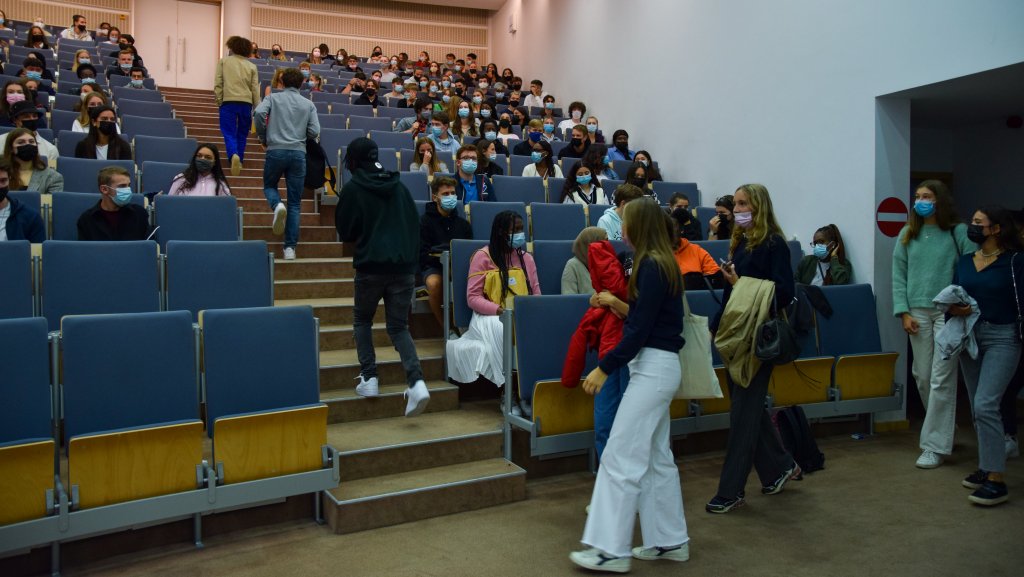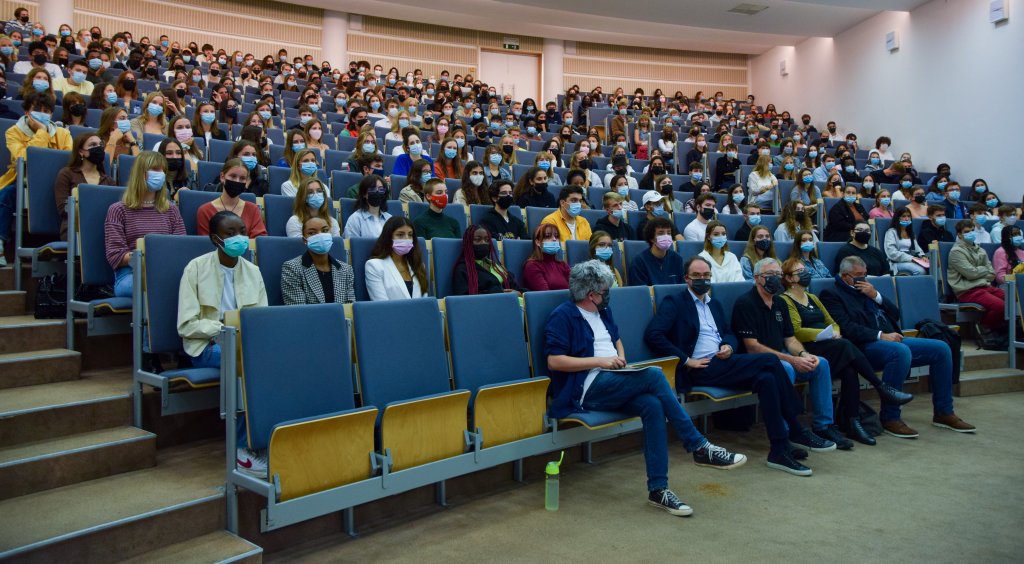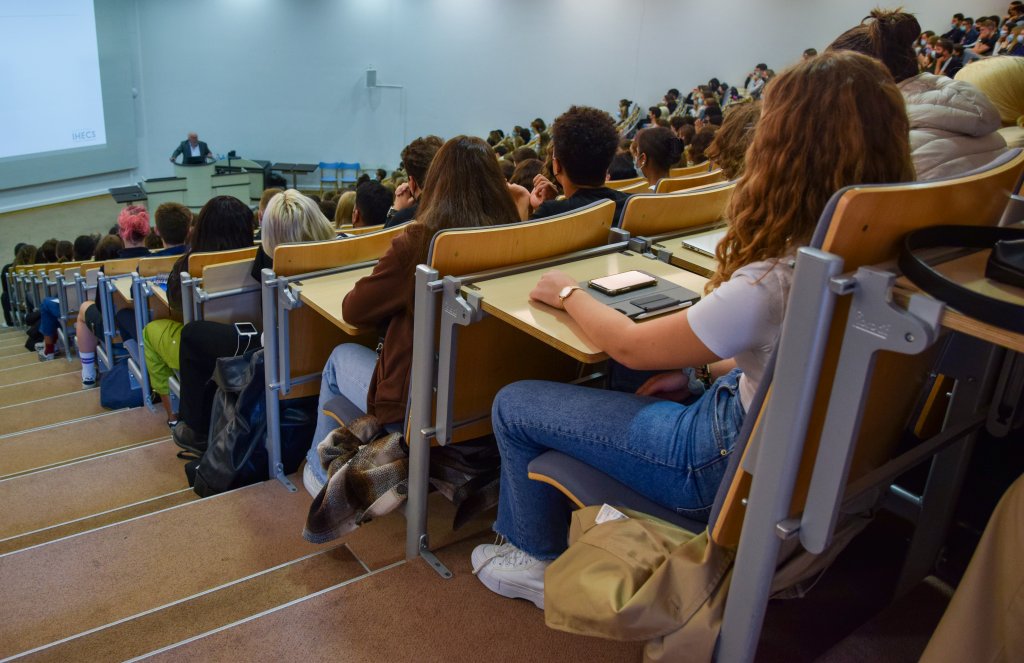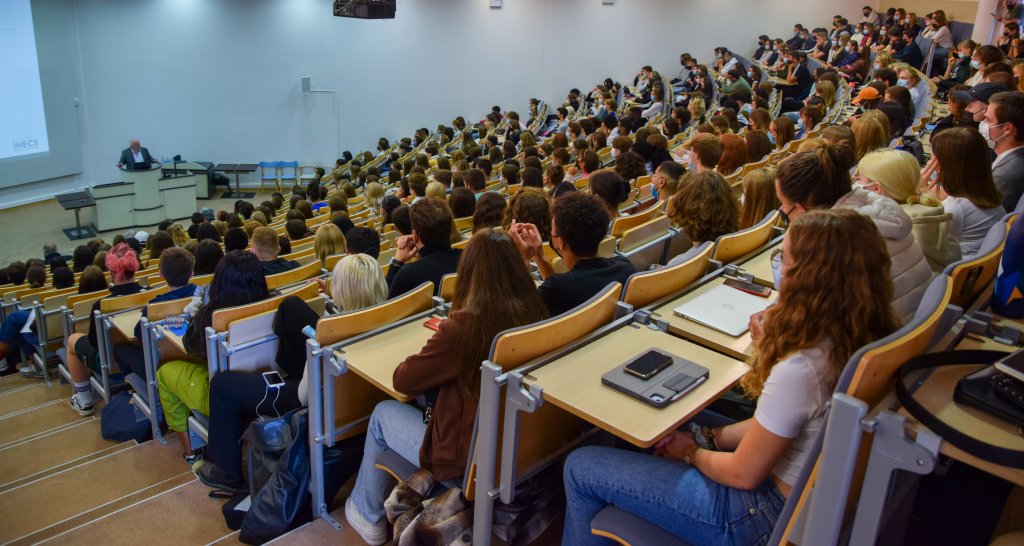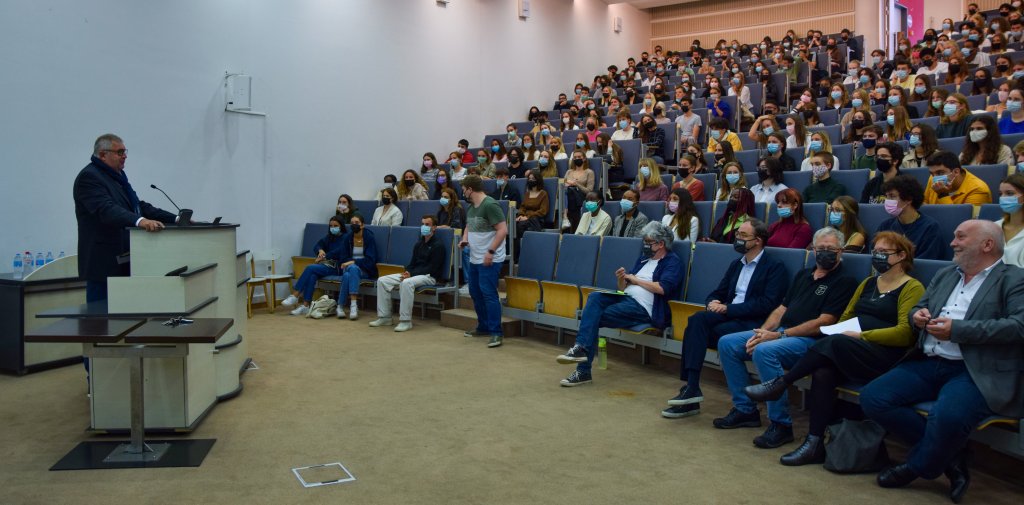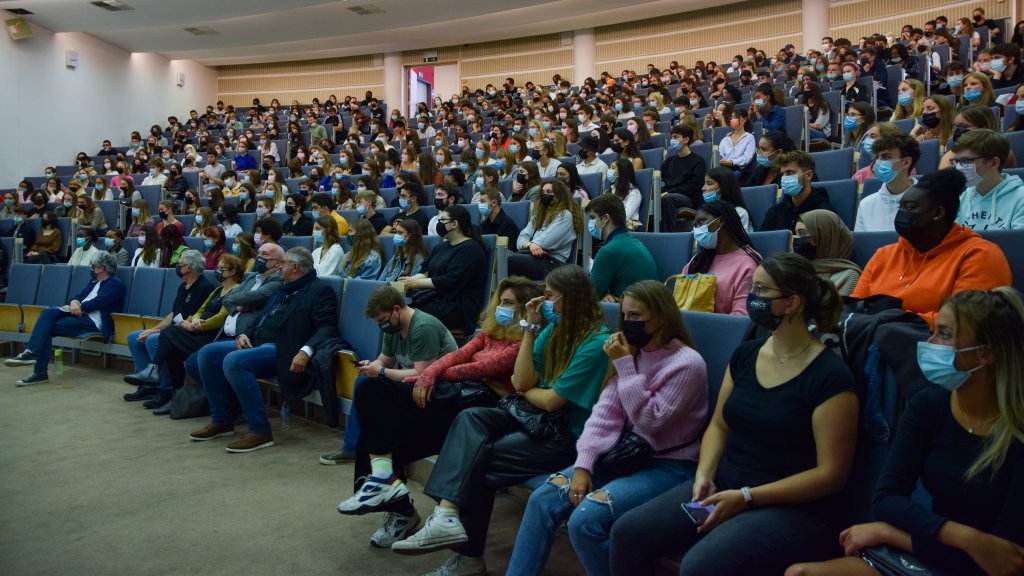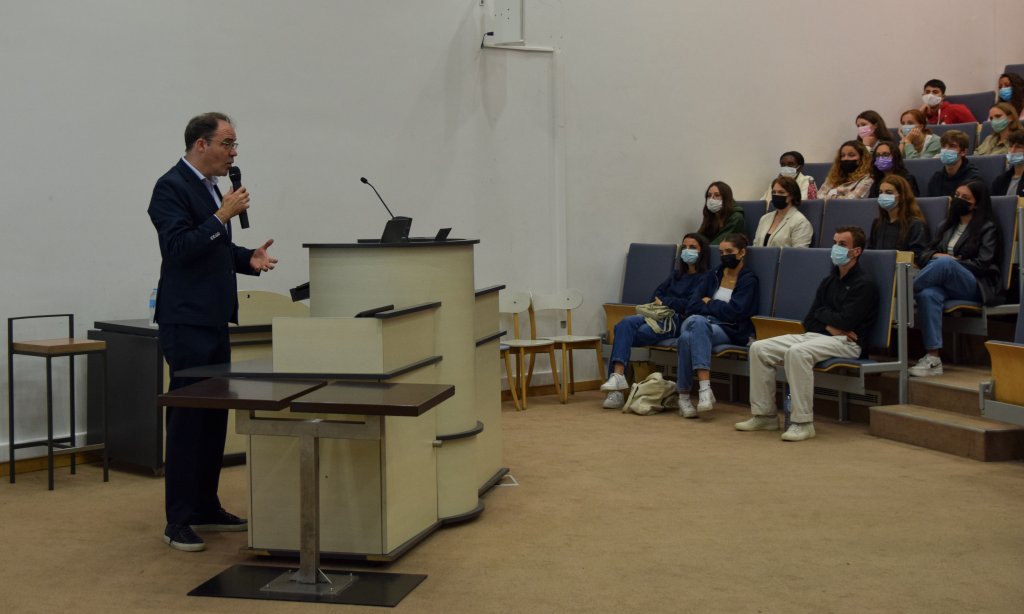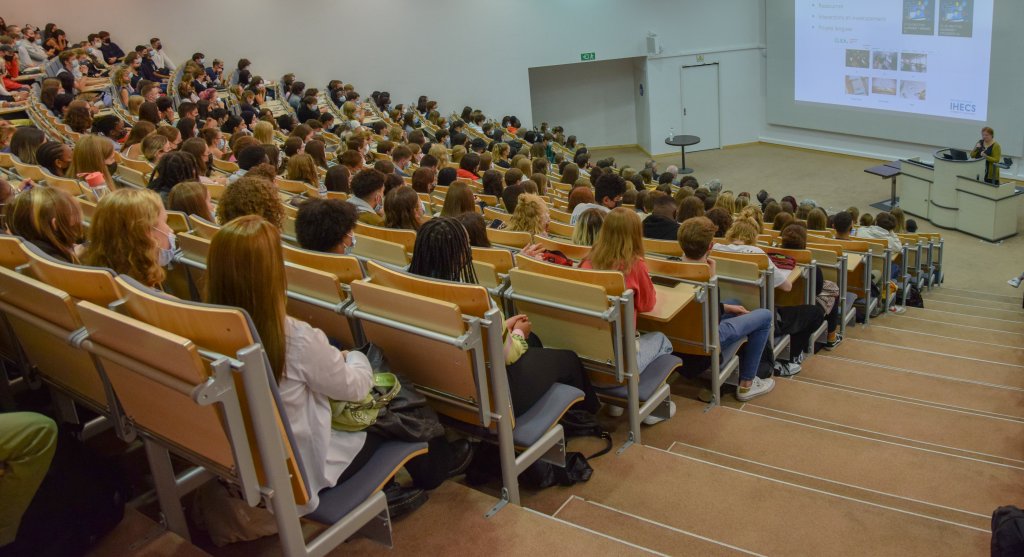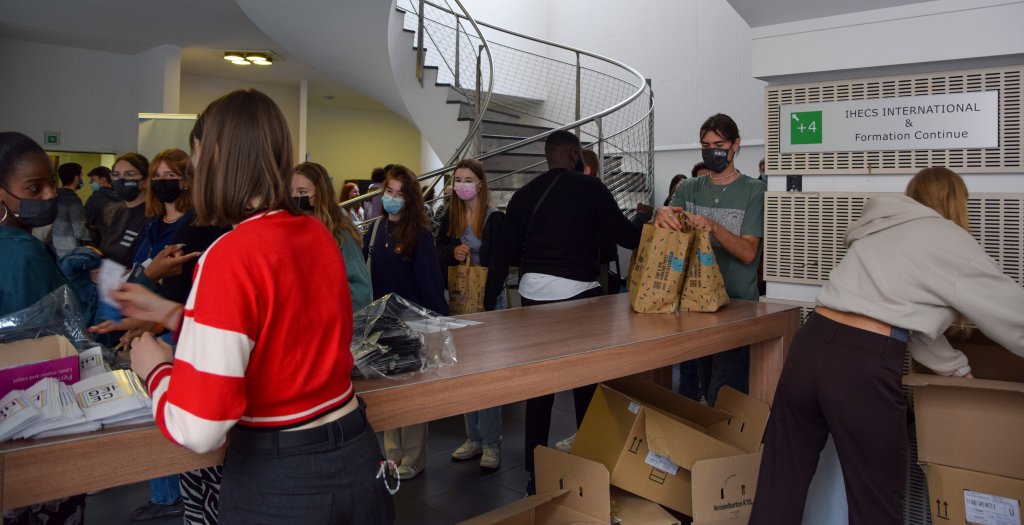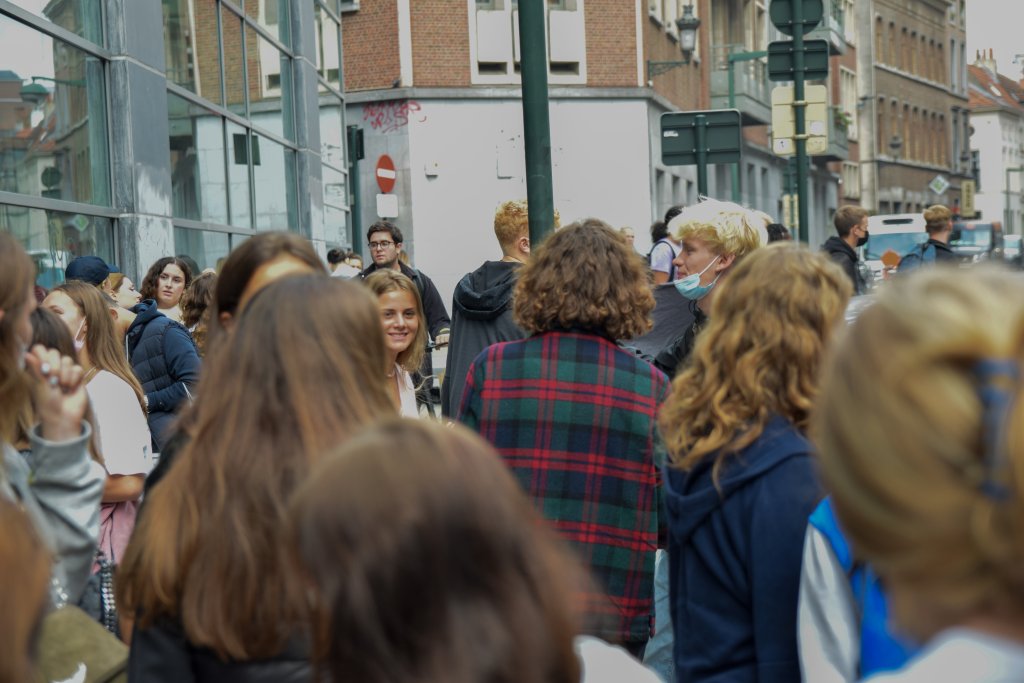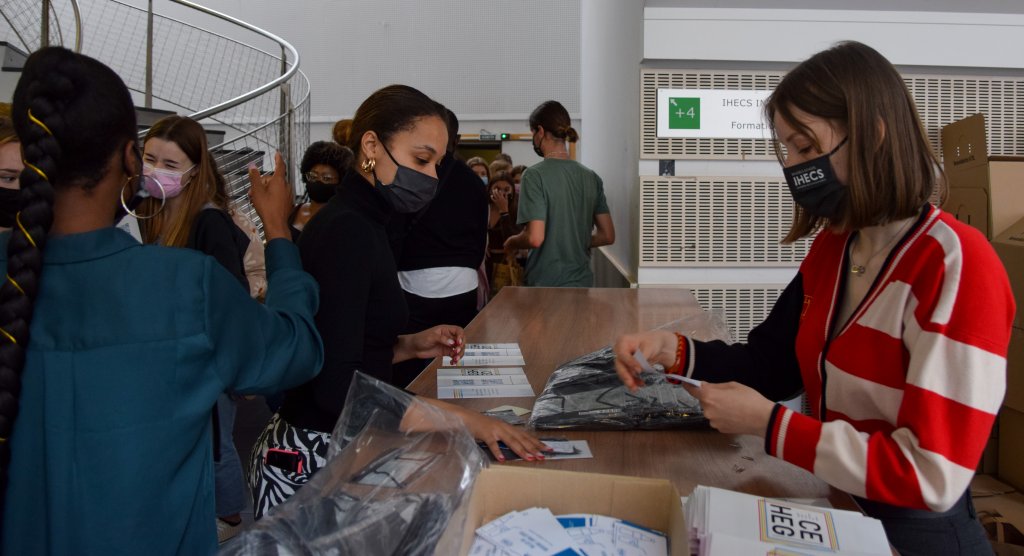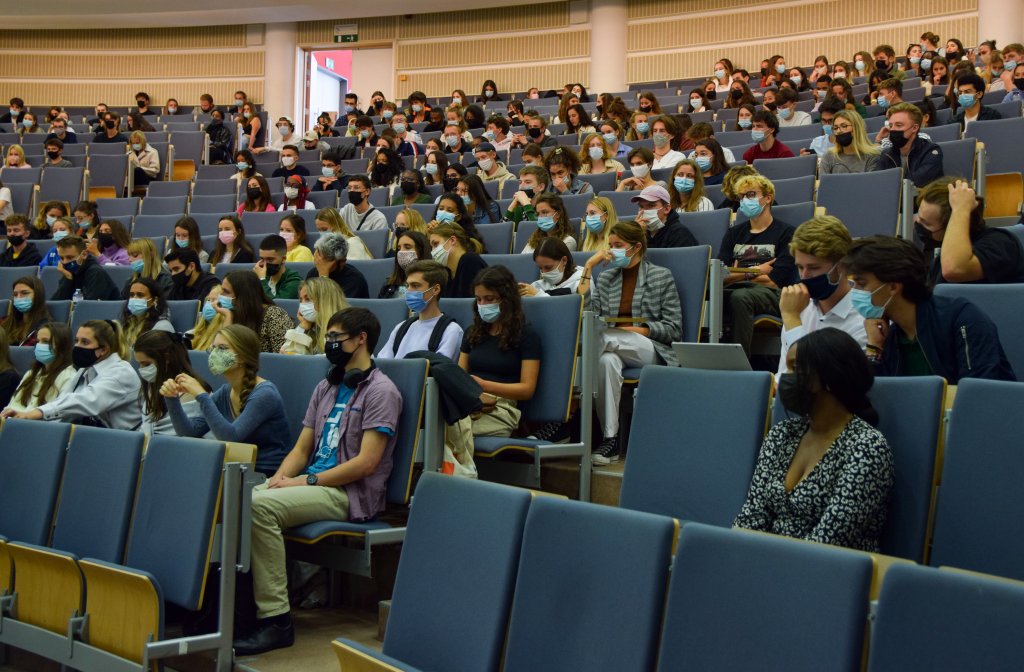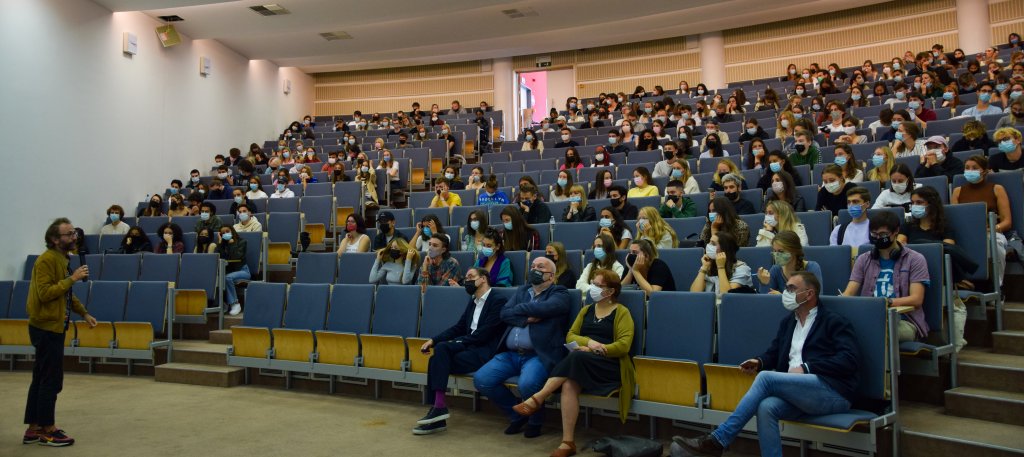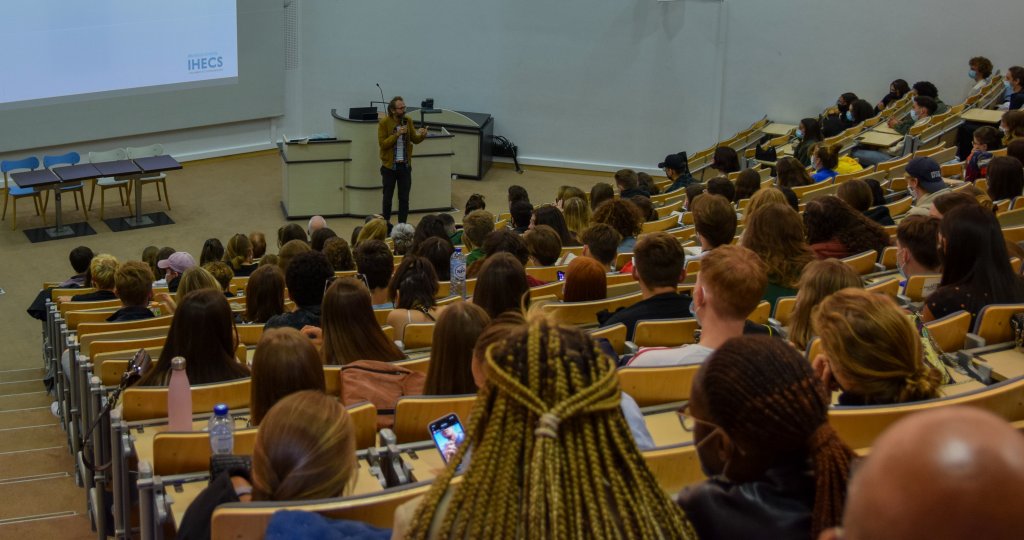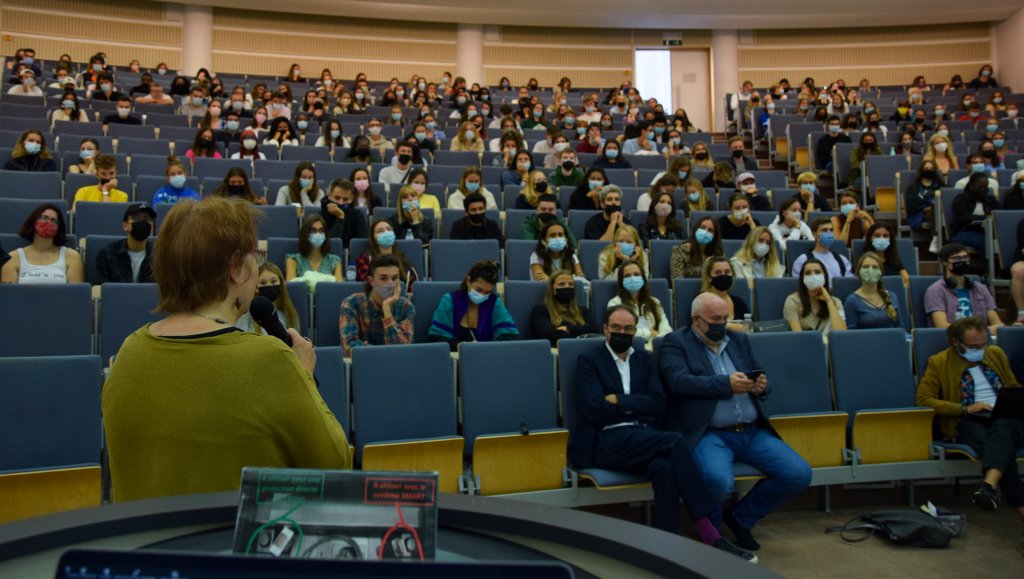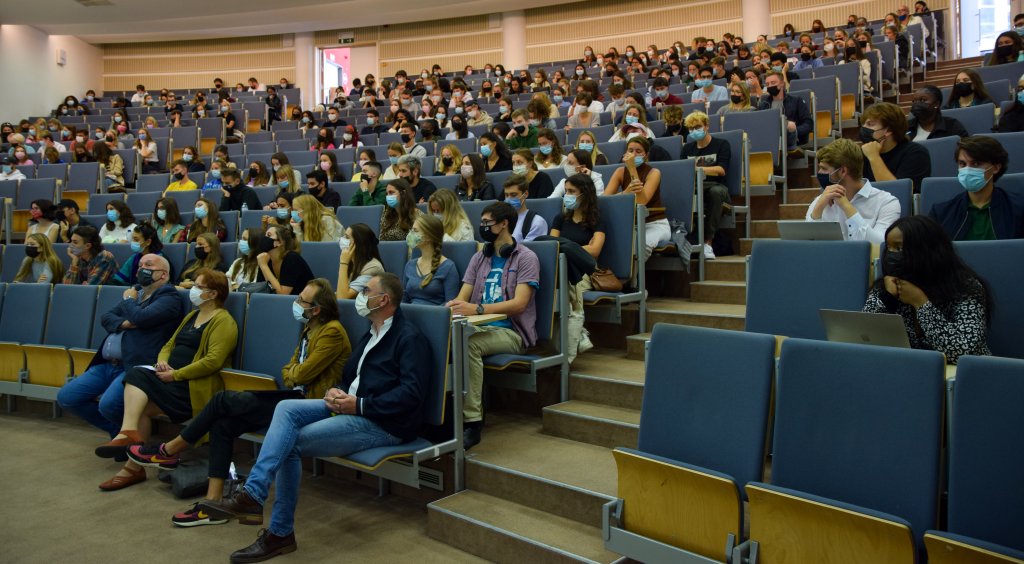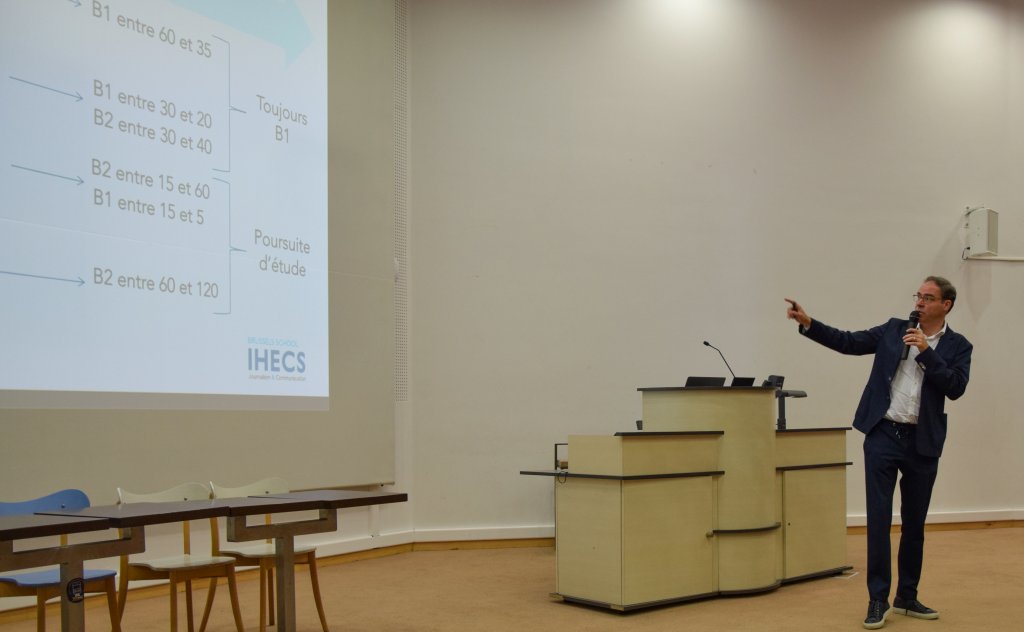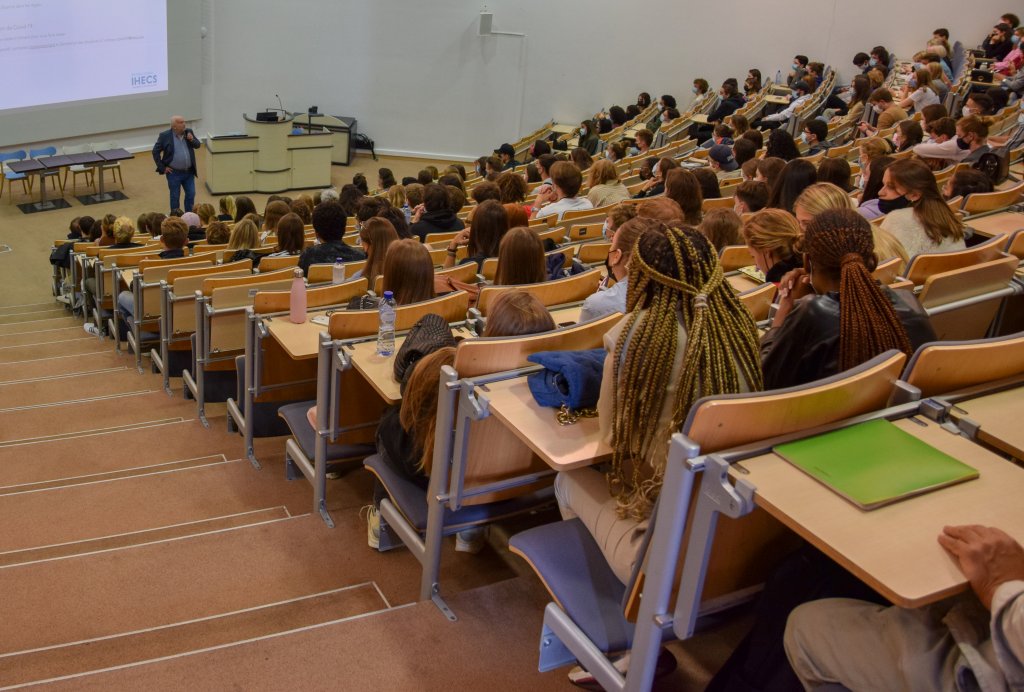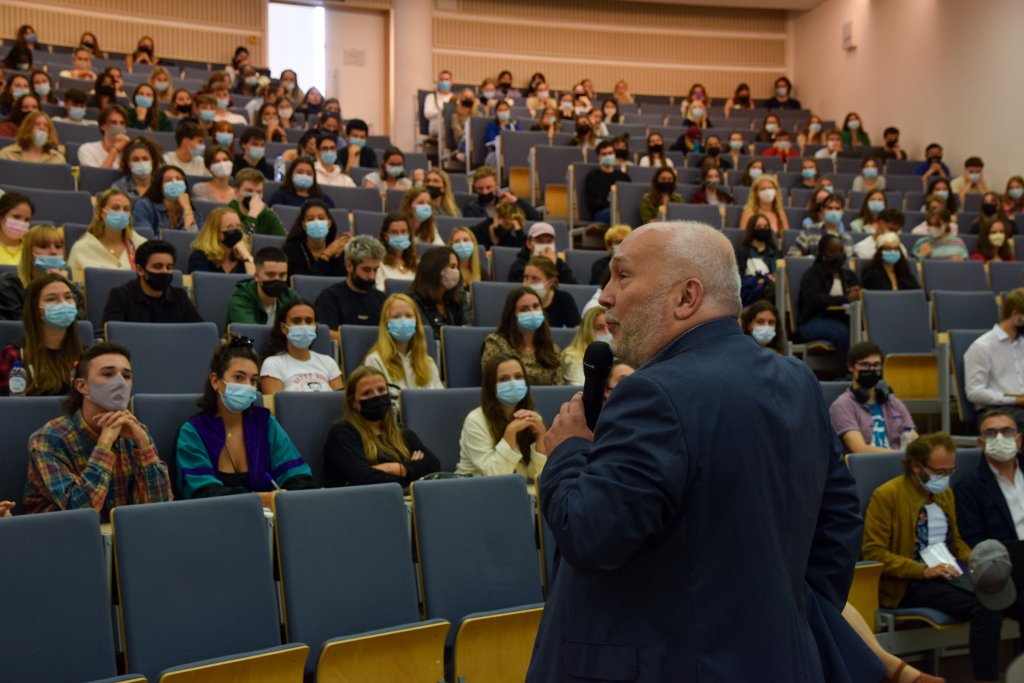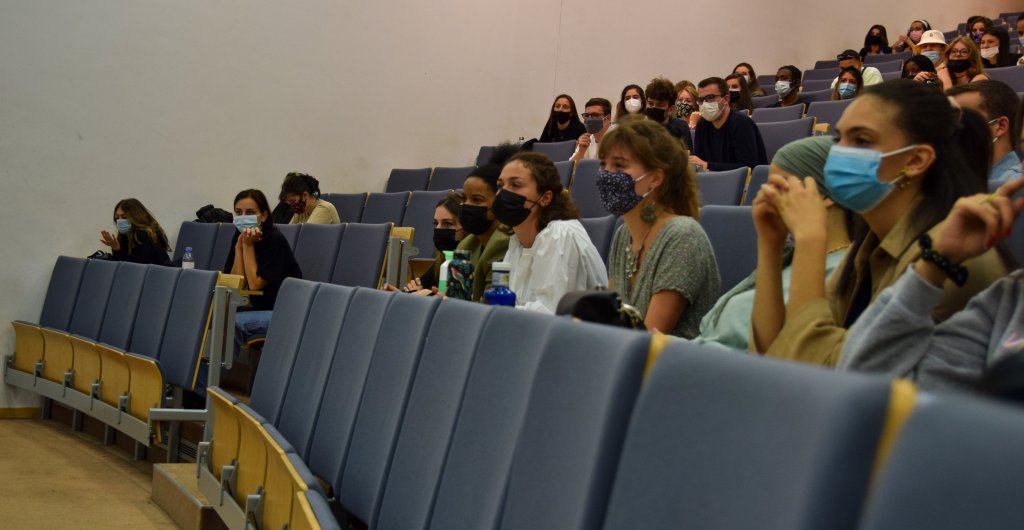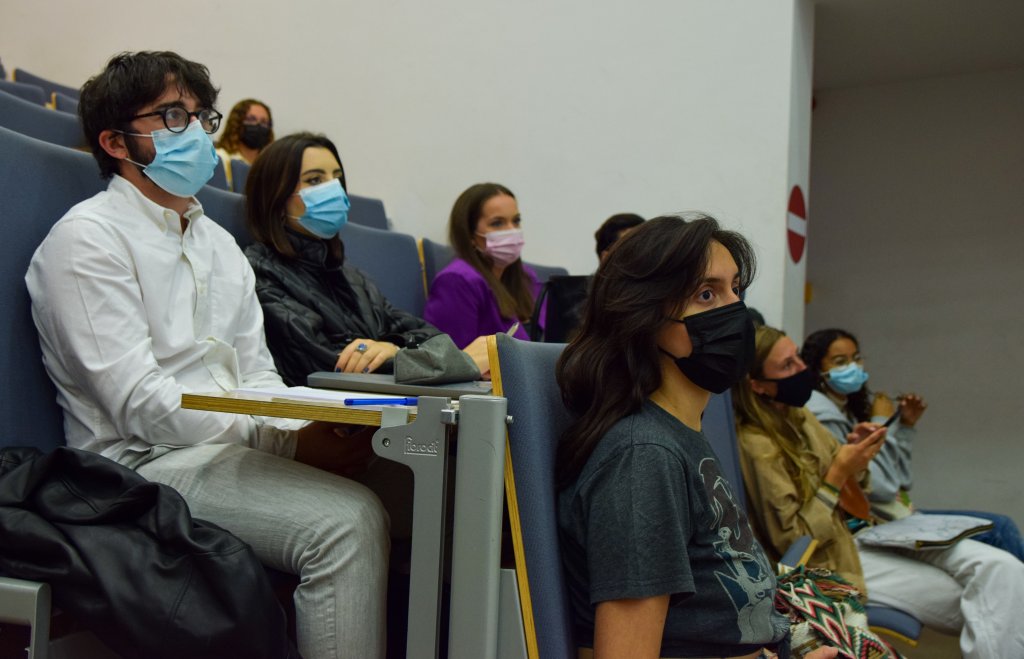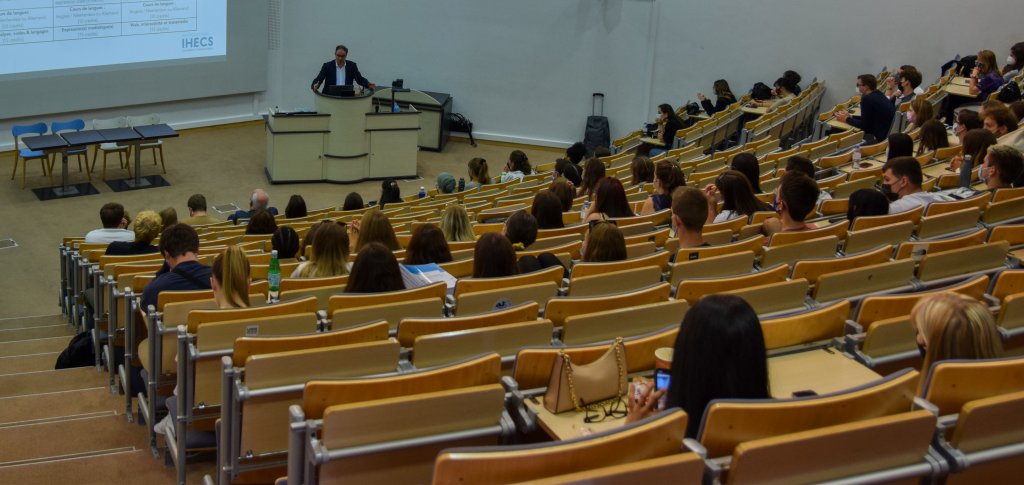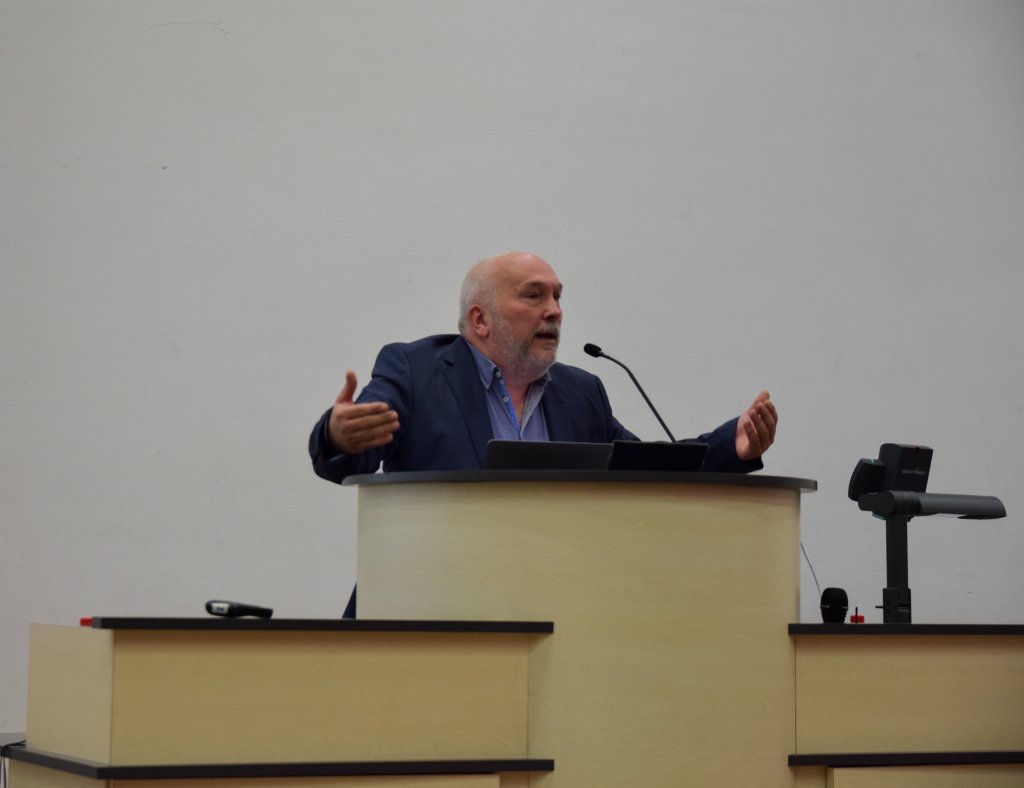Everyone is back, in person!
After recognising how difficult the situation must have been for so many and expressing his joy at seeing his students in person once again, our new director, Frédéric Moens, insisted that the institution and its members would do everything in their power to maintain the current set-up and keep teaching face-to-face.
During his speech to new students in BLOC 1, the director drew attention once more to the concept of communication and information:
"Communication and information: the magic words are unleashed. Communication has been in vogue for more than 70 years. As early as 1948, in his work La cybernétique, Norber Wiener established communication as a value: it is at the heart of our societies and at the foundation of democracy; it provides the necessary platform for the transparency and information that constitute the essential characteristics of contemporary modernity and of our advanced societies. In this way, communication becomes omnipresent and assumes an appearance of omnipotence. It is used to solve problems and is sought after for that reason: to communicate is to be at the heart of all these processes. The communicator is like an actor, a new leader, aware of his or her position and importance. Sometimes he or she may feel like a modern-day pope.
In the aftermath of communication, information benefits from the same positives a priori. It allows us access to the world, breaks down its borders and eliminates any confinement. This new panacea builds democracy, infuses society with rationality and combats all forms of totalitarianism.
But is the scene so idyllic? The rosy version, perhaps even a little blissful, of communication and information that I have just outlined is not exhaustive. A darker version clouds these realities. Information can deceive us – it can announce itself as fake news, an information bubble folded in on itself. The communication that connects us is also a form of indoctrination or manipulation. As Noam Chomsky demonstrates, propaganda is not limited to times of war or dictatorships: it is the most effective mechanism for controlling populations in our democratic societies and is more economical for a power than police or repressive surveillance.
Through communication and information, divergences of our democratic regimes also emerge. Donald Trump is therefore a product of communication, the fake news that he peddled during four years of presidency – and that he continues to disseminate today – segmenting, fragmenting and transforming the United States. The lies emanating from Boris Johnson in the United Kingdom were constructed in and resulted in Brexit. Political parties such as Vlaams Belang in Flanders employ the same communication strategies to conjure a reality corresponding to their representation of the world. Or the health criss that has plagued us for ten months is presented and deciphered, but simultaneously oriented and reinterpreted by the press and governments through communication mechanisms that are less naive than they appear.
Herein lies the power of communication. Revealing its worst side, conspiracy, or the sympathetic version of that, namely transparency, and showcasing its best side, exchange or sharing, communication indisputably constitutes an absolutely essential cornerstone of our societies. And the same goes for information that allows us to know and understand the world, but which occasionally hems us in and misleads us.
Add to this its exponential growth and its technological hype. Communication tools have diversified over the last century. The speed of technical development in this area is even more impressive than in society as a whole. So the press of the 21st century no longer relies on the same tools as that of the early 20th century. And yet these myriad tools coexist more than they come into mutual confrontation. Social networks have not sucked all the vitality out of the internet, which in turn has not led to the demise of TV, which in turn has not killed radio, which in turn has not eliminated the press. Each of these tools has its own logic, but also shares commonalities with other entities; all are transformed by the new new kids on the block, and the latter remain influenced by their predecessors. These interweaving and intertwining generations analytically demand to be understood and practically seek reinvention.
Beyond these few words, as you know, communication and information therefore presuppose an interest, a job, a questioning. And you came looking for them here. Your interest in communication and information has led you to choose a particular place in which to understand and study them: you have chosen IHECS."
Following this introduction, Frédéric Moens recalled that our institution is characterised above all by its pedagogy and that it places the students at the heart of all it holds dear.
"We want you to learn by doing. This does not mean that our teaching is limited to practical application, but that it is based on this, and that we use this as a starting point from which to approach the concepts, the analysis and the abstraction.
We also want to train you not to be where you are expected. Although practical application is vital in terms of appraising the logics of communication, there are other aspects to consider. We regard criticism, analysis and taking responsibility for the use of communication and information for your future jobs as being equally significant. In our view, we should never do anything without knowing what it is we are doing, without knowing why we are doing it and also without knowing upstream the context in which we find ourselves and the consequences of our actions down the line. And we wish to pass this responsibility on to you."
The choice you made by coming to IHECS is a demanding one that will force you to be creative, to have the desire and the energy to do things, but also to understand, to reflect and to conceptualise. The practice of communication and information that we wish to promote requires both practice and implementation, but also time spent on abstraction and understanding. We want to introduce you to this media intelligence, allow you to master existing tools and lead you to create the formats of the future, but this ambition on our part also presupposes that you are active and that you become the impetus behind your own training. So we expect a lot from you!"
In closing, Frédéric Moens declared this new academic year open before giving the floor to his colleagues to present the institution and its workings. He also wished everyone an excellent start to the new school year.
